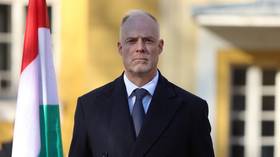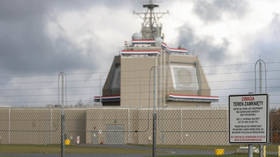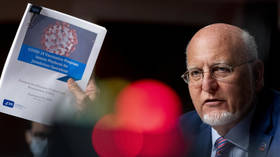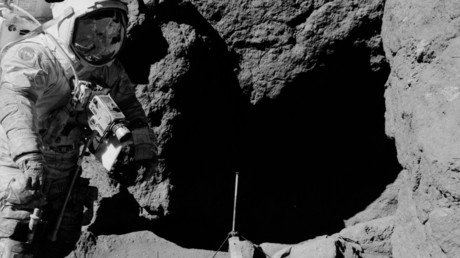Guardian compromised by UK MoD? Deputy editor thanked for ‘re-establishing links’ post Snowden leaks
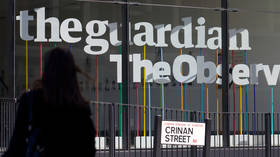
The Guardian newspaper’s deputy editor was thanked by the UK MoD for “re-establishing links” between the newspaper and the intelligence services after the 2013 Snowden leaks, a document showing board meeting minutes has revealed.
Deputy editor Paul Johnson joined the MoD’s Defence and Security Media Advisory Notice (also known as DSMA or D-Notice) committee in 2014, in the aftermath of the newspaper’s landmark publishing of the Edward Snowden files.
D-Notices are advisory warnings to the media not to publish certain information, supposedly aimed at protecting national security, but which many journalists regard as an attempt to gag them and suppress important information from the public.
Also on rt.com State secrecy? Govt media adviser denies D-notices suppressed child abuse claimsA document shared online by independent journalist Matt Kennard shows that the chairman of the D-Notice board thanked Johnson for being “instrumental in re-establishing links” between the paper and UK military intelligence after the Guardian had its wrists slapped over the revelations.
Guardian's deputy editor @paul__johnson joined state censorship D-Notice committee (run by MOD) after Snowden revelations in sop to British spooks. In board minutes, they thank him for being "instrumental in re-establishing links" between UK mil/intel and Guardian. Explains a lot pic.twitter.com/kN27T0QoMm
— Matt Kennard (@DCKennard) June 11, 2019
In July 2013, before Johnson joined the board, he and other Guardian staff had been forced to smash up hard drives containing encrypted files leaked by Snowden in the basement of the paper's London offices. The paper had been told it could either hand the material back, destroy it or face an injunction. David Cameron, PM at the time, sent his cabinet secretary Jeremy Heywood to tell the newspaper that “a lot of people in government think [The Guardian] should be closed down.”
Did anyone think after they came to the @guardian and they smashed laptops that the guardian would be allowed to continue unless they balled ball with the government?? I saw that miles away!
— Ddon (@Ddonfon) June 11, 2019
Another document detailing the minutes of a meeting held in the MoD on May 8, 2014, shows Air Vice-Marshal Andrew Vallance reported that the MoD’s relationship with the Guardian had “continued to strengthen” with Johnson on board. This strengthening was due to “regular dialogues” being held with Guardian journalists, the document says.
Johnson was seemingly rewarded for his compliance two years later when he was awarded an interview with MI5 head Andrew Parker, the first ever newspaper interview given by a serving spy chief.
In 2016 - two years after joining D-Notice comm - Guardian dep ed @paul__johnson was personally rewarded for “re-establishing links” btw security services and Guardian. He was awarded the “first newspaper interview given by a serving spy chief” w MI5’s Andrew Parker. Major coup. pic.twitter.com/vT9vXJgGix
— Matt Kennard (@DCKennard) June 13, 2019
Revealing the closeness between Johnson and British security services, Kennard suggested the newspaper’s editors are compromised and questioned whether its output can be trusted. Kennard has specifically cited instances of shoddily-sourced reporting on WikiLeaks whistleblower Julian Assange, who has been targeted and publicly maligned by the British government and the Guardian itself in recent years.
Also on rt.com WikiLeaks betting ‘$1mn & editor’s head’ against Guardian claims that Manafort met AssangeKennard noted that Johnson had been thanked for “re-establishing links” with the security services just two weeks before the Guardian published what WikiLeaks called a “fabricated” story claiming Assange had secretly had multiple meetings with US President Donald Trump’s former campaign manager Paul Manafort at the Ecuadorian Embassy where he was under asylum.
The Guardian refused to retract the story or even acknowledge the uproar it sparked. Kennard suggested the story could have been the result of the paper being “fed disinformation” by its “handlers” in the security services who wanted to push false information about Assange to the public.
Dominic Wilson, Director G at MOD, congratulated Guardian dep ed @paul__johnson for “re-establishing links” btw Guardian and security services two weeks before Guardian published fabricated story about Assange-Manafort meetings. Was Guardian fed disinformation by its handlers? pic.twitter.com/tEGV8kp34R
— Matt Kennard (@DCKennard) June 14, 2019
Guardian's Deputy Editor, @paul__johnson, pushed fabricated front page Assange-Manafort story. Johnston is a member of the UK government's media suppression board. The stated purpose of the board is to suppress true stories about UK spies, state security. https://t.co/1XCx3xbtt2pic.twitter.com/YD5rftzcJ9
— WikiLeaks (@wikileaks) January 6, 2019
Despite the significance of the documents showing the Guardian’s very cozy relationship with the MoD, British media has maintained radio silence on the story.
UK's Sunday papers are not brimming with stories on @DCKennard's important find on Guardian links to security services. I'm shocked. It's almost as if the (nominally competitive) corporate media have a collective interest in keeping inconvenient stories from the public. https://t.co/wD2SjZFvbA
— Mark Curtis (@markcurtis30) June 16, 2019
Like this story? Share it with a friend!
Subscribe to RT newsletter to get stories the mainstream media won’t tell you.






